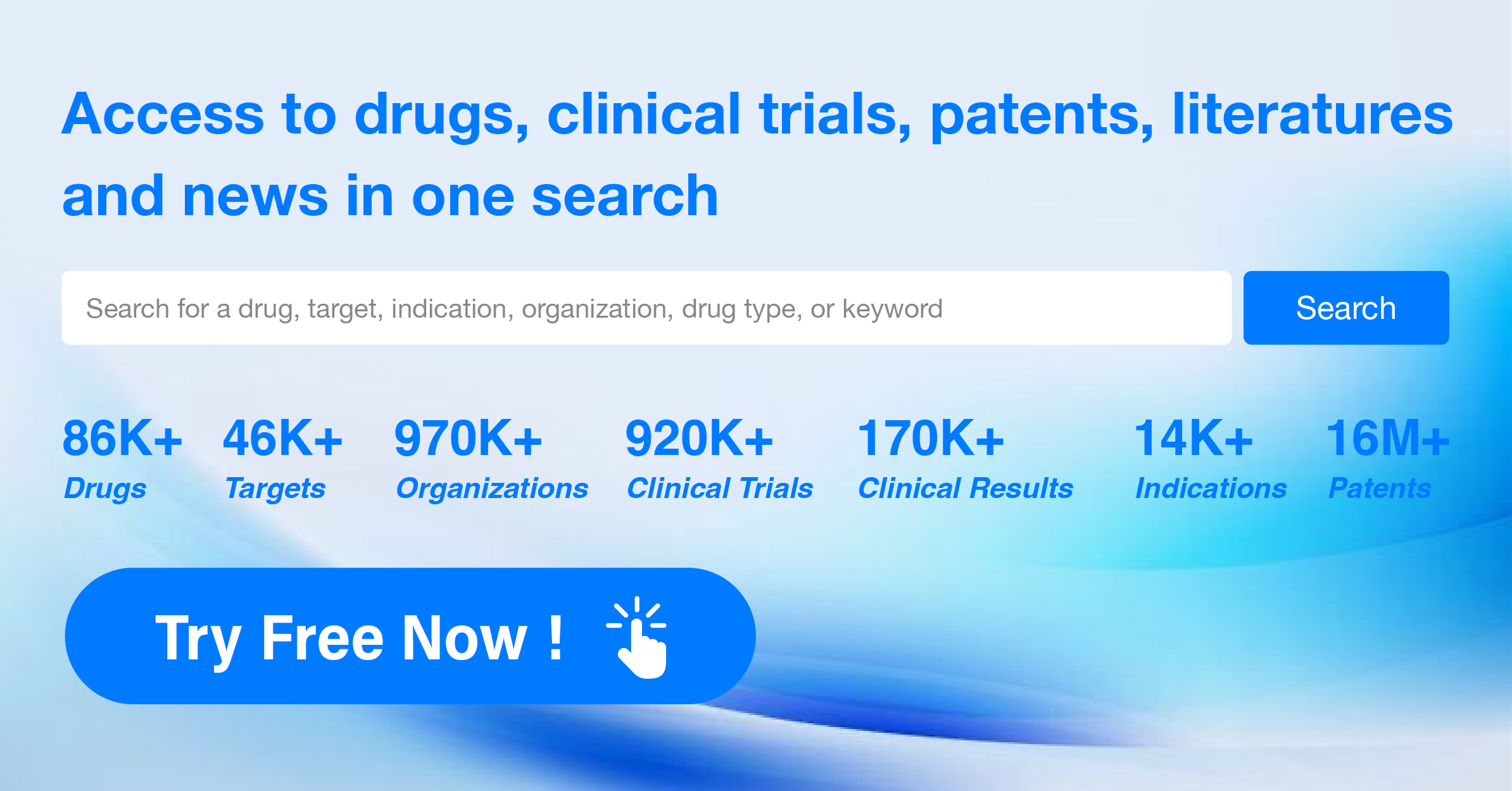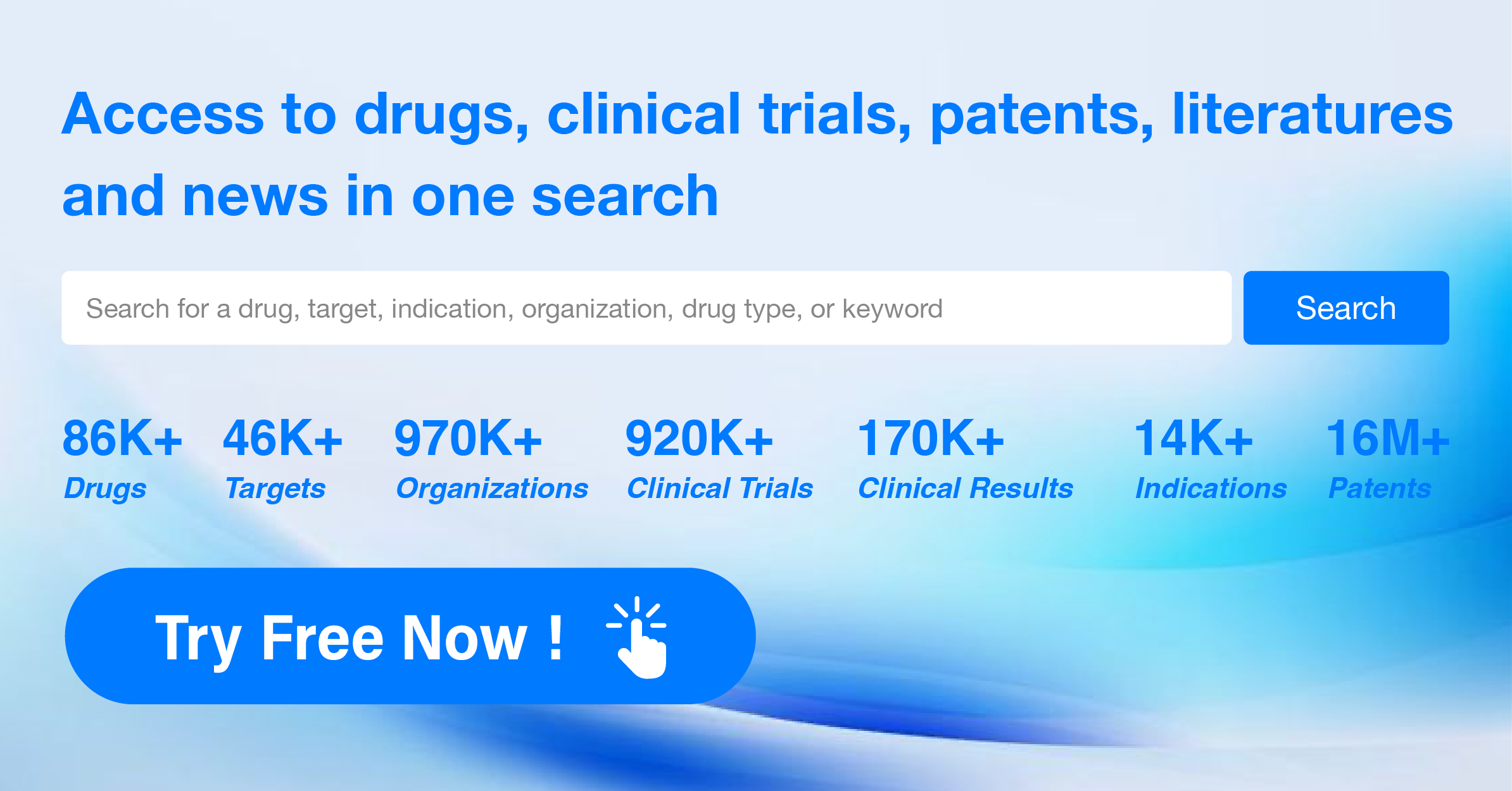Global New Drug Research and Development Progress Weekly Report(5.27-6.2)
Global Pharmaceutical Research and Development Progress
1.CAR-T Therapy Achieves Breakthrough Clinical Results, 100% of Patients Reach Remission!
On May 27, iCell Gene Therapeutics announced the positive results of an investigator-initiated trial (IIT) for its BCMA and CD19 dual-targeting compound chimeric antigen receptor T-cell (BCMA-CD19 cCAR-T) immunotherapy. The analysis revealed that all patients with systemic lupus erythematosus (SLE)/lupus nephritis (LN) who received an adequate initial dose of cCAR-T therapy exhibited negative autoantibodies three months post-treatment. At a 46-month follow-up, these patients achieved medication-free remission (MFR) and were asymptomatic. These trial results have been published in the Annals of the Rheumatic Diseases.
Based on these promising outcomes, iCell plans to conduct further clinical trials of this therapy in the United States and China. LN is associated with several nephrological risks, including end-stage kidney disease requiring dialysis or kidney transplantation, as well as renal mortality. The current approach to controlling LN involves induction therapy to achieve remission and long-term maintenance therapy to prevent relapse. However, there are no approved therapies that can help SLE/LN patients with high risks of long-term organ damage and kidney transplantation achieve medication-free remission.
The published trial was a single-arm, open-label, multi-center Phase 1 study designed to evaluate the efficacy and safety of iCell's BCMA-CD19 cCAR-T therapy in SLE/LN patients whose autoantibodies are produced by B cells and plasma/long-lived plasma cells.
2.Boan Biotechnology's Self-Developed Denosumab Biosimilar for Oncology Approved for Market Launch
On May 27th, Boan Biotechnology announced that its self-developed Denosumab Injection (120mg) for oncology has officially received marketing approval from the China National Medical Products Administration (NMPA). The approval is for the treatment of giant cell tumor of bone that is unresectable or where surgical resection is likely to result in severe morbidity, including in adult patients and adolescents whose bones have fully matured (defined as having at least one mature long bone and a body weight of ≥45 kg). Denosumab Injection (BA1102) is a biosimilar to Xgeva, with the active ingredient being a fully human IgG2 monoclonal antibody targeting the RANK ligand. Two pivotal clinical studies comparing BA1102 with the reference product met all study endpoints. Comparative studies on pharmacokinetics (PK), pharmacodynamics (PD), safety, tolerance, and immunogenicity in healthy subjects demonstrated PK and PD bioequivalence between BA1102 and the reference product. Effectiveness and safety studies in patients with bone metastases from solid tumors showed that BA1102 has highly similar clinical efficacy, safety, and immunogenicity compared to the reference drug.
3.Innovent Biologics’ New Psoriasis Drug Picankibart to Apply for Marketing Authorization
On May 28, Innovent Biologics announced that its independently developed recombinant anti-interleukin 23p19 subunit (IL-23p19) antibody injection, Picankibart, has achieved the primary and all key secondary endpoints in a Phase 3 clinical trial (CLEAR-1) conducted with Chinese patients with moderate to severe plaque psoriasis. In this study, the primary endpoint (PASI 90 at week 16) exceeded 80%, and Picankibart demonstrated the potential for maintenance dosing every 12 weeks, requiring only about 5 to 6 doses annually. Innovent Biologics plans to submit a new drug application for Picankibart for the treatment of psoriasis to the China National Medical Products Administration (NMPA).
The CLEAR-1 study, which achieved its primary and all key secondary endpoints, is a multicenter, randomized, double-blind, placebo-controlled Phase 3 clinical trial designed to evaluate the efficacy and safety of Picankibart in patients with moderate to severe plaque psoriasis. The study results indicated that Picankibart provided sustained, robust skin clearance over a one-year treatment period. By week 52, the proportion of patients achieving PASI 90 and sPGA 0/1 scores remained stable across both dosing groups of Picankibart. Specifically, at week 52, the 200mg cohort maintained PASI 90 and sPGA 0/1 scores at 84.9% and 85.9%, respectively. These results provide strong clinical data to support the long-term efficacy benefits of Picankibart for patients with moderate to severe plaque psoriasis.
4.Eisai/Biogen Alzheimer's Antibody Drug Lecanemab Approved in South Korea
On May 27, Eisai and Biogen announced that the Ministry of Food and Drug Safety (MFDS) of South Korea has approved the marketing of the humanized anti-soluble amyloid-beta (Aβ) monoclonal antibody lecanemab. The drug is indicated for the treatment of early-stage (mild) Alzheimer's disease or mild cognitive impairment due to Alzheimer's disease in adult patients. According to Eisai’s press release, this approval in South Korea follows approvals in the United States, Japan, and China, making it the fourth country to approve lecanemab.
Lecanemab has achieved both the primary endpoint and all key secondary endpoints in the global Phase 3 study Clarity AD, with statistically significant results. The findings of the Clarity AD study have been published in the New England Journal of Medicine. The study data showed that lecanemab demonstrates significant efficacy and good safety. Within three months of treatment, it notably reduced the Aβ burden, and by 18 months, it effectively slowed disease progression by 27%. Additionally, 60% of the earlier-stage patients experienced disease course reversal.
These study results prove that lecanemab can help early Alzheimer's disease (AD) patients improve cognitive impairment and maintain a longer duration of independent living, thereby reducing the socioeconomic burden on families and society.
5.Roche's PI3Kα Inhibitor Inavolisib Submits NDA and Receives Priority Review in the U.S.
On May 29, Roche announced that its PI3Kα inhibitor, Inavolisib (GDC-0077), has had its New Drug Application (NDA) accepted by the FDA and granted Priority Review status. This treatment is intended for use in combination with Palbociclib and Fulvestrant for adults with PIK3CA-mutant, hormone receptor-positive (HR+), human epidermal growth factor receptor 2-negative (HER2-) locally advanced or metastatic breast cancer, who have either relapsed within 12 months of adjuvant endocrine therapy or after receiving prior endocrine therapy. The PDUFA date is set for November 27, 2024. Last month, this indication also received Priority Review status from the National Medical Products Administration in China.
The NDA was primarily based on the positive outcomes from the Phase III INAVO120 study. The primary endpoint of the study was progression-free survival (PFS). Results showed that the median PFS in the Inavolisib group was significantly longer than in the placebo group (15.0 vs. 7.3 months, HR=0.43, P<0.0001), which is both statistically and clinically significant. Although overall survival (OS) data are not yet mature, a clear positive trend has been observed (NE vs. NE, HR=0.64, P=0.0338), with follow-up ongoing for future analysis.
Inavolisib is an oral, highly selective PI3Kα inhibitor, demonstrating higher selectivity and potency against PI3Kα compared to other isoforms (PI3Kβ/δ/γ). It uniquely triggers selective degradation of mutant PI3Kα proteins. Thanks to this distinct dual-action mechanism, Inavolisib has the potential to offer well-tolerated and durable disease control for patients with HR+/HER2- PI3Kα-mutant advanced breast cancer, potentially improving their prognosis.
6.Merus Set to Initiate Phase 3 Trial for Breakthrough First-Line Bispecific Antibody Combination Therapy
On May 29th, Merus announced positive data from its Phase 1/2 clinical trial for the investigational bispecific antibody petosemtamab, in combination with the PD-1 inhibitor pembrolizumab, as a first-line therapy for patients with head and neck cancer. In this interim dataset, the overall response rate (ORR) for patients receiving the petosemtamab combination therapy reached 67%, regardless of the patients' tumor PD-L1 expression levels or human papillomavirus (HPV) status. The analysis, assessed by researchers using the RECIST v1.1 criteria, showed an ORR of 67%, which includes one confirmed complete response (CR), twelve confirmed partial responses (PR), and three unconfirmed PRs. Among the four patients with HPV-associated head and neck cancer, three achieved a response. The response rate was 60% (6/10) in patients with tumor PD-L1 expression and a combined positive score (CPS) of 1-19, and 71% (10/14) in those with a CPS≥20. Across 45 patients, the combination of petosemtamab and pembrolizumab exhibited good tolerability, with no significant overlapping toxicities observed between the two drugs.
Petosemtamab is being developed through Merus’ Biclonics platform as an investigational, EGFR- and LGR5-targeting, antibody-dependent cellular cytotoxicity (ADCC)-enhanced IgG1 bispecific antibody. According to information on Merus' official website, preclinical models have shown that petosemtamab can bind to and trigger degradation of EGFR in tumor stem cells expressing LGR5.
7.Positive Trial Results Announced for NewAmsterdam's Innovative Small Molecule Therapy Obicetrapib
On May 29, NewAmsterdam Pharma disclosed positive data from its investigational CETP inhibitor obicetrapib in treating hypercholesterolemia patients during the 92nd Annual Congress of the European Atherosclerosis Society (EAS). The Phase 2 clinical trials, ROSE1 and ROSE2, demonstrated that obicetrapib, in conjunction with high-intensity statin therapy, can reduce lipoprotein(a) — Lp(a) levels by 57% compared to placebo. Pooled analysis indicated that adding 10 mg of obicetrapib to high-intensity statin therapy results in a significant 57% reduction in Lp(a) levels compared to the placebo group. According to the abstract, this reduction is markedly higher than previous results observed with proprotein convertase subtilisin/kexin type 9 (PCSK9) inhibitors (15-30%), niacin (30%), or other CETP inhibitors (25%).
Obicetrapib is an oral, selective CETP inhibitor. CETP is a protein that transfers cholesterol from high-density lipoprotein cholesterol (HDL-C, also known as good cholesterol) to low-density lipoprotein cholesterol (LDL-C, also referred to as bad cholesterol). By blocking CETP’s function, obicetrapib can significantly lower LDL-C levels while simultaneously raising HDL-C levels.
8.Johnson & Johnson's Small Molecule Therapy Orexin-2 Receptor Antagonist Achieves All Phase 3 Clinical Endpoints
On May 30th, Johnson & Johnson announced that the topline results of the Phase 3 clinical trial MDD3001 demonstrated the efficacy and safety of seltorexant as adjunctive therapy for major depressive disorder (MDD) in adults and elderly patients with insomnia symptoms. Seltorexant is a potential "first-in-class" selective human orexin-2 receptor antagonist. This randomized, double-blind, placebo-controlled Phase 3 clinical study met all primary and secondary endpoints. Patients treated with seltorexant showed a statistically significant and clinically meaningful improvement in depressive symptoms at Day 43, based on the Montgomery-Åsberg Depression Rating Scale (MADRS) total score, and an improvement in sleep disturbances in patients who previously had an inadequate response to traditional antidepressants alone.
Additionally, Johnson & Johnson released results from the TRD4005 Phase 4 clinical trial of Spravato nasal spray as monotherapy in patients with treatment-resistant depression (TRD). This study also met its primary and secondary endpoints. The randomized, double-blind, multicenter study showed that Spravato provided rapid, statistically significant, and clinically meaningful improvement in depressive symptoms approximately 24 hours after the first dose, and this effect was sustained over the 4-week treatment period. Spravato has been approved by the U.S. FDA for use in combination with oral antidepressants for the treatment of adults with treatment-resistant depression and major depressive disorder (MDD) with suicidal ideation or behavior.
9.AstraZeneca’s Potential “First-in-Class” Small Molecule AZD0780 Shows Promising Clinical Data
On May 30, AstraZeneca presented positive results for its investigational oral PCSK9 inhibitor, AZD0780, from a Phase 1 clinical trial at the European Atherosclerosis Society (EAS). When combined with the statin drug rosuvastatin, AZD0780 can reduce patients' levels of low-density lipoprotein cholesterol (LDL-C) by nearly 80%. AZD0780 entered Phase 2b clinical trials for treating dyslipidemia patients in January of this year. The Phase 1 trial aimed to evaluate the pharmacodynamics, pharmacokinetics, safety, and tolerability of AZD0780 as a monotherapy and in combination with rosuvastatin in untreated hypercholesterolemia patients. Subjects took either a placebo, 30 mg, or 60 mg of AZD0780 (n=15 per group) daily for four weeks. Another cohort included 35 subjects who took 20 mg of rosuvastatin for three weeks followed by 30 mg of AZD0780 or a placebo for four weeks. Analysis showed that in untreated hypercholesterolemia patients, AZD0780 significantly reduced LDL-C levels by 52% (95% CI: -57, -45) on top of rosuvastatin treatment, with an overall LDL-C reduction of 78% from baseline. Additionally, preliminary data compared drug intake with and without food.
10.Soterios Announces Positive Clinical Results for Innovative Therapy STS-01
On May 31, Soterios Pharma announced that its investigational drug STS-01 had achieved positive results in a Phase 2 clinical trial for the treatment of mild to moderate alopecia areata. The analysis showed that the trial met its primary endpoint and multiple secondary endpoints, with over one-quarter of the patients experiencing complete hair regrowth following treatment. According to the press release, STS-01 has the potential to become the first approved therapy for mild to moderate alopecia areata and could become the standard treatment option.
The results disclosed were from a randomized, placebo-controlled, multiple-dose Phase 2 trial aimed at evaluating the efficacy and safety of STS-01 in patients with mild to moderate alopecia areata over a 24-week period. The analysis indicated that at 24 weeks, 75.9% of patients receiving once-daily topical administration of 1% STS-01 achieved the primary efficacy endpoint, defined as a >30% improvement in SALT score, compared to only 36.7% in the placebo group (p<0.0096). The trial also met several secondary endpoints, showing significant hair regrowth in patients treated with 1% and 2% STS-01. Specifically, 19% and 27% of patients treated with 1% and 2% STS-01, respectively, achieved 100% scalp hair coverage (SALT=0), compared to only 3% in the placebo group, demonstrating a clear dose-response relationship for STS-01.Regarding safety, STS-01 was well-tolerated with no major adverse events reported.
For more information on the progress of drug development, please follow the Synapse database.
Dynamics of Global Pharmaceutical Trade Cooperation
1.CStone Pharmaceuticals Enters Collaboration for Anti-PD-L1 Monoclonal Antibody
On May 27, CStone Pharmaceuticals announced a commercial collaboration with European pharmaceutical company Ewopharma, granting them the commercialization rights for Sugemalimab in the Central and Eastern Europe (CEE) region. Under the licensing and commercialization agreement, Ewopharma will secure the commercialization rights for Sugemalimab in Switzerland and 18 CEE countries. CStone Pharmaceuticals will receive up to $51.3 million in upfront payments, as well as subsequent milestone payments for registration and sales.
Sugemalimab, developed by CStone Pharmaceuticals, is an anti-PD-L1 monoclonal antibody, which has been approved in China for five registered clinical indications, including stage III and IV non-small cell lung cancer (NSCLC), extranodal NK/T-cell lymphoma, esophageal squamous cell carcinoma, and gastric cancer. Additionally, the European Medicines Agency (EMA) and the UK's Medicines and Healthcare products Regulatory Agency (MHRA) have both accepted the marketing authorization applications for Sugemalimab combined with chemotherapy for first-line treatment of metastatic NSCLC. Both applications are currently under review.
Ewopharma is a professional pharmaceutical marketing company with extensive experience and widespread channels in the CEE market. This collaboration is expected to significantly enhance the clinical and commercial value of Sugemalimab in the European market, benefiting a greater number of patients with this innovative drug.
2.Bio-Thera Licenses European Market Rights of Golimumab Biosimilar to STADA
On May 28, Bio-Thera Solutions announced it has entered into a licensing and commercialization agreement with STADA Arzneimittel AG for BAT2506, granting STADA exclusive commercialization rights for BAT2506 in the European Union, the United Kingdom, Switzerland, and certain other European countries. According to the terms of the agreement, Bio-Thera will be responsible for the development, production, and commercial supply of BAT2506, while STADA will handle the commercialization in the specified European markets. Upon reaching certain milestones, Bio-Thera is entitled to receive an upfront payment and milestone payments totaling up to $157.5 million, in addition to a double-digit percentage of net sales as revenue sharing. BAT2506 is a golimumab biosimilar developed by Bio-Thera in accordance with the biosimilar guidelines of the National Medical Products Administration (NMPA) of China, the U.S. Food and Drug Administration (FDA), and the European Medicines Agency (EMA). Golimumab is an antibody targeting TNF-α, capable of specifically binding to both the soluble and transmembrane forms of human TNF-α with high affinity, thereby blocking the interaction between TNF-α and its receptors TNFR, and inhibiting the activity of TNF-α. BAT2506 has now completed global Phase III clinical trials.
3.Medilink Therapeutics and BioNTech Enter into TMALIN® ADC Technology Platform Licensing Agreement
On May 27, Medilink Therapeutics announced a new strategic collaboration with BioNTech SE. Under this collaboration, BioNTech will obtain exclusive option and corresponding global exclusive license to develop ADC products targeting specifically designated innovative targets using Medilink Therapeutics' TMALIN® ADC technology platform. According to the terms of the new agreement, Medilink Therapeutics will receive an upfront payment of USD 25 million (approximately RMB 181 million) and is eligible to receive up to USD 1.8 billion in development, regulatory, and commercial milestone payments, as well as tiered royalties based on future global annual net sales. As part of the agreement, Medilink Therapeutics will have the right of first refusal for any sublicensing or transfer of these ADC products within the Greater China region (Mainland China, Hong Kong, Macau, Taiwan) that BioNTech may seek in the future.
4.Merck to Acquire EyeBio, Gaining a Tri-specific Ophthalmic Antibody
On May 29th, Merck and the ophthalmic biotechnology company EyeBio announced the final acquisition agreement. According to the terms of the agreement, Merck will acquire all outstanding shares of EyeBio through a subsidiary for up to $3 billion, which includes $1.3 billion in upfront cash and $1.7 billion in potential development, regulatory, and commercial milestone payments. This acquisition has been unanimously approved by the EyeBio board of directors. EyeBio is developing a series of clinical and preclinical candidate drugs aimed at preventing and treating vision loss associated with retinal vascular leakage. The company's lead candidate, Restoret™ (EYE103), is an investigational first-in-class quadrivalent, tri-specific antibody administered via intravitreal injection. Based on positive results from the open-label Phase Ib/IIa AMARONEY study in patients with diabetic macular edema (DME) and neovascular age-related macular degeneration (NVAMD), Restoret is expected to advance into a pivotal Phase IIb/III trial in the second half of 2024 to evaluate its potential for treating DME. EyeBio is being acquired less than 3 years after its inception, and the transaction is expected to close in the third quarter of 2024.
5.Asahi Kasei Acquires Kidney and Autoimmune Pipeline for Approximately $1.1 Billion
On May 28th, Asahi Kasei announced its intention to acquire Calliditas Therapeutics for SEK 11.164 billion (approximately $1.1 billion), making Calliditas a wholly-owned subsidiary of Asahi Kasei. According to the press release, Asahi Kasei, headquartered in Japan, aims to expand its product portfolio in the fields of kidney and autoimmune diseases, establish its business in Europe, and enhance its R&D pipeline through this acquisition. Calliditas Therapeutics, which is based in Stockholm, Sweden, has accepted Asahi Kasei's public tender offer, as per their press release.
Calliditas Therapeutics is a biopharmaceutical company focused on identifying, developing, and commercializing new therapies for rare diseases with significant unmet medical needs. One of its core products is NEFECON, a targeted mucosal immunomodulator for the gut. NEFECON were approved by China's NMPA in November 2023 for the treatment of adults with primary IgA nephropathy at risk of progression. Another key investigational product from Calliditas is the NOX1/4 inhibitor setanaxib, which has shown positive results in a Phase 2a clinical study for patients with primary biliary cholangitis (PBC). Furthermore, in May of this year, setanaxib achieved positive results in a Phase 2 trial for treating patients with squamous cell carcinoma of the head and neck (SCCHN).
6.Burning Rock Medical and Bayer Enter Strategic Partnership on Companion Diagnostics for Oncology Products
Recently, Burning Rock Medical and Bayer have officially entered into a strategic partnership in the field of companion diagnostics for oncology products. This partnership aims to provide diagnostic methods and treatment options to cancer patients in China, thereby promoting innovation and development in cancer treatment. The collaboration will focus on the development of companion diagnostic products in China, working together to develop next-generation sequencing-based companion diagnostic tests for Bayer's growing precision oncology portfolio. Burning Rock Medical is dedicated to providing clinically valuable next-generation sequencing (NGS) for precision oncology. The company's business and research and development efforts primarily cover: 1) precision medical testing for cancer patients; 2) partnerships with global oncology pharmaceutical companies in biomarker discovery and companion diagnostics; and 3) early detection across multiple cancer types.





